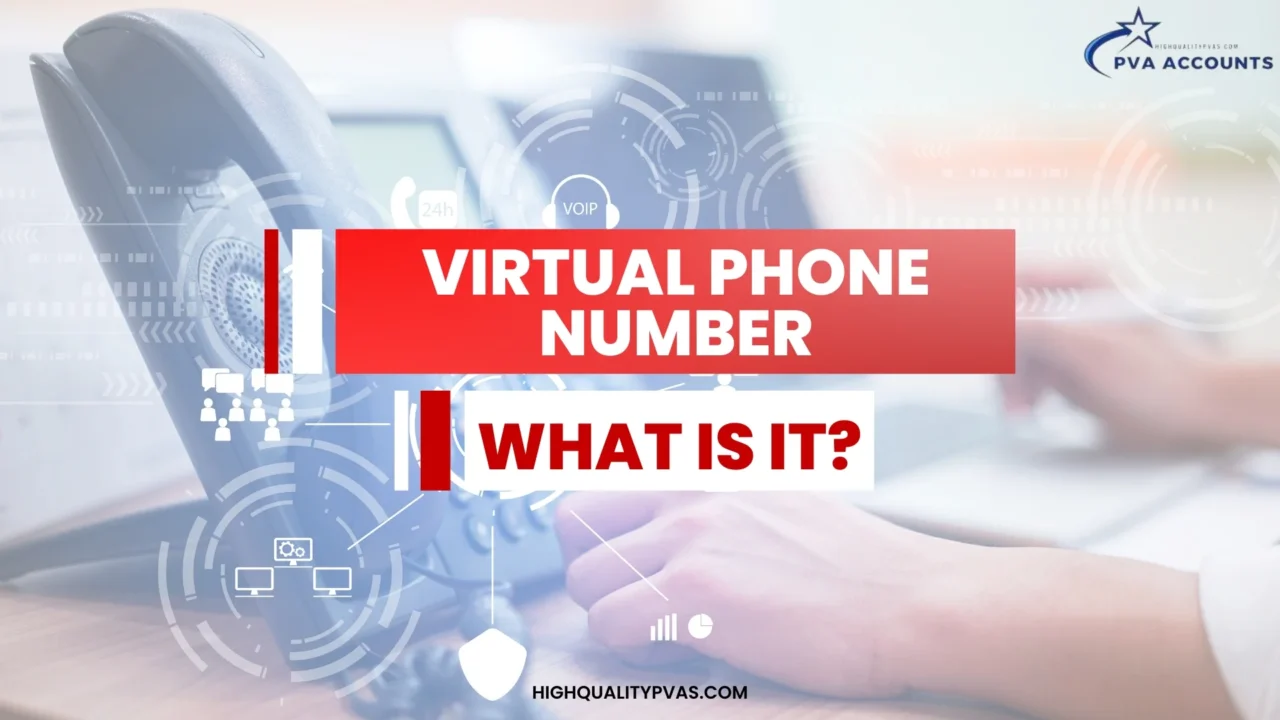
Welcome to the fascinating world of virtual phone numbers! In today’s digital age, communication has taken on a new level of convenience and flexibility. Gone are the days when we relied solely on traditional landlines or mobile phones to stay connected. With the advent of virtual phone numbers, individuals and businesses can now enjoy the benefits of a fully functional phone line without needing physical hardware or costly installations. But what exactly is a virtual phone number, and how does it work? Buckle up as we delve into the intricacies of this technology and explore its endless possibilities.
Virtual or cloud-based phone numbers are a revolutionary solution that has transformed how we communicate. Instead of relying on traditional telephone lines, virtual phone numbers leverage the power of the internet to route calls and messages. This means you can make and receive calls using your existing devices – whether your smartphone, tablet, or even your computer – as long as you are connected to the internet. No more wires, no more limitations. Just seamless, hassle-free communication at your fingertips.
In this comprehensive guide, we will dissect the inner workings of virtual phone numbers and shed light on the technology that powers them. We will explore their benefits for personal and business use and the various features and functionalities that make them a game-changer in the telecommunications industry. So, if you’ve ever wondered how virtual phone numbers work and how they can benefit you, get ready to embark on this exciting journey with us.
What is a Virtual Phone Number?
A virtual phone number, also known as a cloud-based phone number, is a telephone number that is not tied to any specific device or location. Instead of relying on traditional telephone lines, virtual phone numbers use the internet to route calls and messages. This means you can make and receive calls using your existing devices – whether your smartphone, tablet, or computer – as long as you are connected to the internet.
Virtual phone numbers utilize Voice over Internet Protocol (VoIP) technology. When someone dials your virtual phone number, the call is routed through the internet and forwarded to your designated device. This allows you to have a fully functional phone line without needing physical hardware or costly installations.
One of the key advantages of virtual phone numbers is their flexibility. Since they are not tied to any specific location, you can use them anywhere worldwide with an internet connection. This makes them ideal for individuals who travel frequently or businesses with remote teams.
You May Also Like:
Read more: What is a virtual phone number and how to get it?
The Basics of Virtual Phone Number Technology and Infrastructure
Virtual phone numbers rely on advanced technology to ensure seamless communication. Here are 5 key components of virtual phone number technology:
- VoIP Technology: Virtual phone numbers use Voice over Internet Protocol (VoIP) technology to transmit calls. This allows for more efficient and cost-effective communication compared to traditional landlines.
- Cloud Telephony: Cloud telephony is revolutionizing the way businesses communicate. Businesses can streamline their communication process and enhance customer experience by utilizing cloud telephony and virtual phone numbers.
- API Integration: In the context of virtual phone numbers, API integration plays a crucial role in enabling the functionality and features of these numbers. Through API integration, virtual phone numbers can be linked to various platforms and services, such as CRM systems, call-tracking software, and messaging platforms.
- Number Porting: Number porting is a process that allows users to transfer their existing phone numbers from one service provider to another. Once the porting is complete, the user’s phone number will function on the new service provider’s network.
- Security & Encryption: A virtual phone number operates through advanced security and encryption protocols to ensure the privacy and protection of user data. When a call is made to a virtual phone number, it is securely routed to the user’s designated device, whether a smartphone, landline, or computer.
What are the Features and Functionalities of Virtual Phone Numbers?
Virtual phone numbers have many features and functionalities that enhance communication and improve call management. Here are 7 key features offered by virtual phone number providers:
- Call Routing: When someone dials your virtual phone number, the call is routed through a server network that connects different devices and locations. This ensures that the call reaches its intended destination regardless of where you are located.
- Call Forwarding: Virtual phone numbers can be set up to forward calls to multiple devices simultaneously. This ensures you always attend all important calls, even away from your primary device.
- Call Recording: Some virtual phone number providers offer call recording capabilities, which can be useful for training or keeping a record of important conversations.
- Voicemail: Virtual phone numbers often include voicemail functionality, allowing callers to leave messages when you are unavailable. You can access these voicemails from any device connected to the internet.
- Auto Attendant: An auto attendant is a virtual receptionist who greets callers and allows them to reach different departments or individuals within your organization.
- Custom Greetings & Messages: You can easily create custom greetings and messages for your callers with a virtual phone number. Whether you want to welcome telephoners with a warm greeting or provide specific instructions, a virtual phone number allows you to customize the experience for your callers.
- Analytics and Reporting: Virtual phone number systems often provide detailed analytics and reporting on call volume, duration, and other metrics. This data can help businesses make informed decisions about their communication strategies.
You May Also Like: Why use virtual phone numbers?
How Virtual Phone Numbers Use the Internet to Route Calls?
Virtual phone numbers leverage the power of the internet to route calls seamlessly and efficiently. When someone dials your virtual phone number, their call is converted into data packets transmitted over the internet using VoIP technology.
The data packets containing the caller’s voice are then routed through a network of servers until they reach their destination – your designated device. This routing process happens in real-time, ensuring minimal delay or disruption in communication.
The use of the internet for call routing offers several advantages:
- Cost Savings: Since virtual phone numbers use the internet instead of traditional telephone lines, you can significantly reduce your communication costs. International calls, in particular, can be much cheaper than conventional methods.
- Flexibility: The internet allows greater device compatibility and location independence flexibility. You can make and receive calls using any device connected to the internet, whether it’s your smartphone, tablet, or computer.
- Scalability: Virtual phone numbers are highly scalable, meaning you can easily add or remove lines as per your needs without any physical installations or disruptions.
How Do You Set Up and Use a Virtual Phone Number?
Setting up and using a virtual phone number is relatively straightforward. Here’s a step-by-step guide:
- Choose a Provider: Select a reputable virtual phone number provider such as High Quality PVAs with features and pricing plans that align with your needs.
- Select Your Number: Once you’ve chosen a provider, you can select your virtual phone number from their available options. You may have the choice of selecting a local or toll-free number.
- Set Up Call Forwarding: Configure your virtual phone number to forward calls to your desired devices. You can set up rules for call forwarding based on your availability and preferences.
- Customize Settings: Explore the various settings and features offered by your virtual phone number provider. This may include voicemail setup, call recording preferences, and auto attendant configuration.
- Test Your Number: Before you use your virtual phone number, it’s a good idea to test it by making a few test calls. This will ensure everything is set up correctly, and you can receive calls without issues.
Security and Privacy Considerations with Virtual Phone Numbers
While virtual phone numbers offer numerous benefits, it’s important to consider security and privacy implications:
- Data Protection: Ensure the virtual phone number provider has robust security measures to protect your data and communications from unauthorized access.
- Fraud Prevention: Avoid potential scams or fraudulent activities associated with virtual phone numbers. Choosing a reputable provider and taking necessary precautions to protect yourself is important.
- Privacy Settings: Familiarize yourself with the privacy settings offered by your virtual phone number provider. This may include blocking certain callers or restricting access to your personal information.
Conclusion: The Future of Communication with Virtual Phone Numbers
Virtual phone numbers have revolutionized communication, offering flexibility, cost savings, and enhanced features compared to traditional telephone lines. As technology advances, we can expect virtual phone numbers to become even more sophisticated and integrated into our daily lives.
Whether you’re a business looking for a scalable communication solution or an individual seeking greater flexibility and privacy, virtual phone numbers are undoubtedly the future of communication. Embrace this technology and unlock its endless possibilities!



